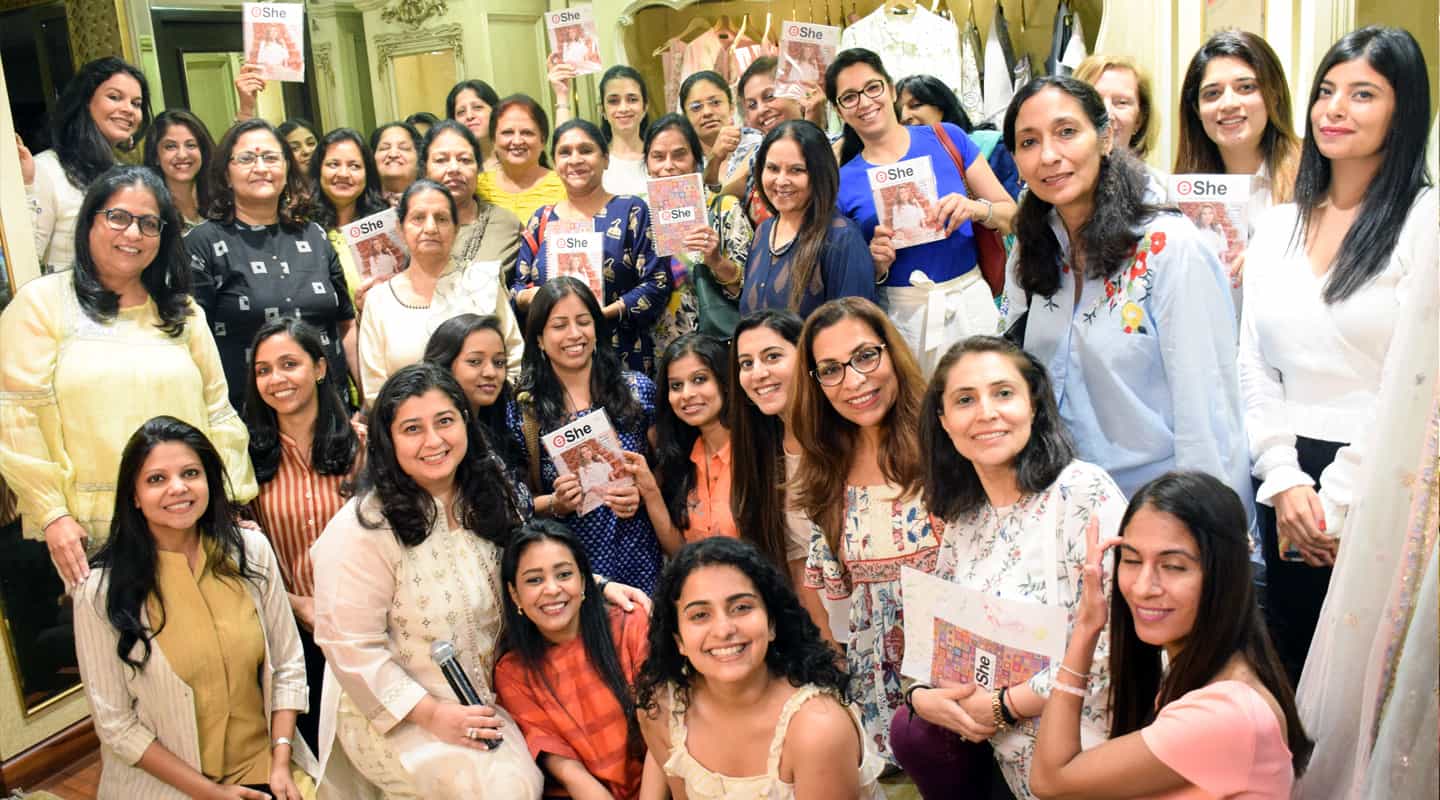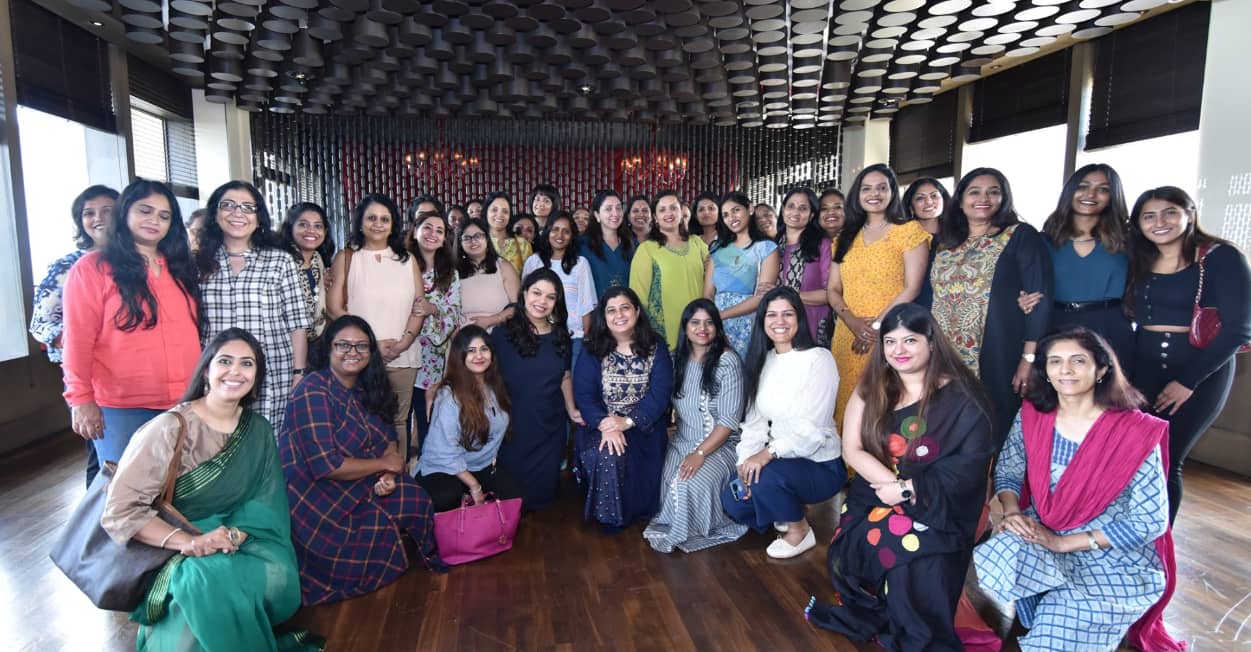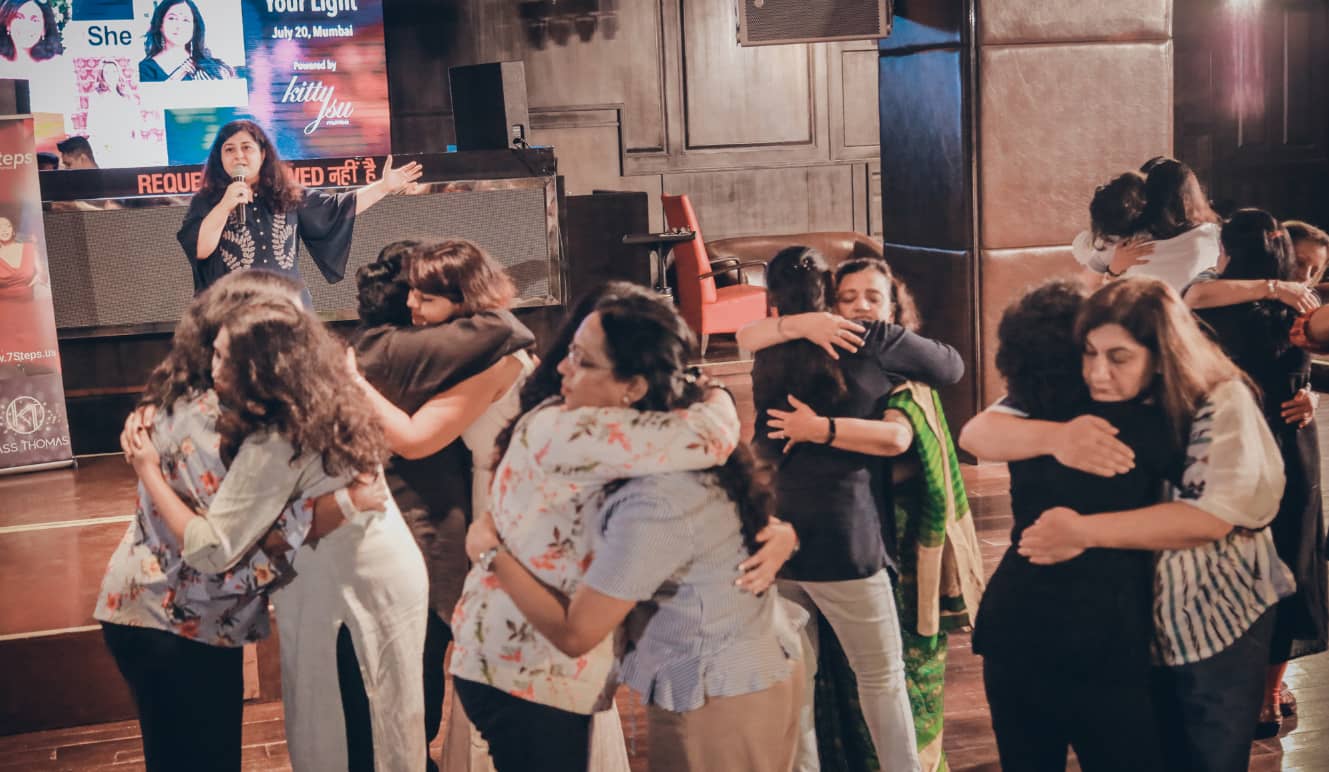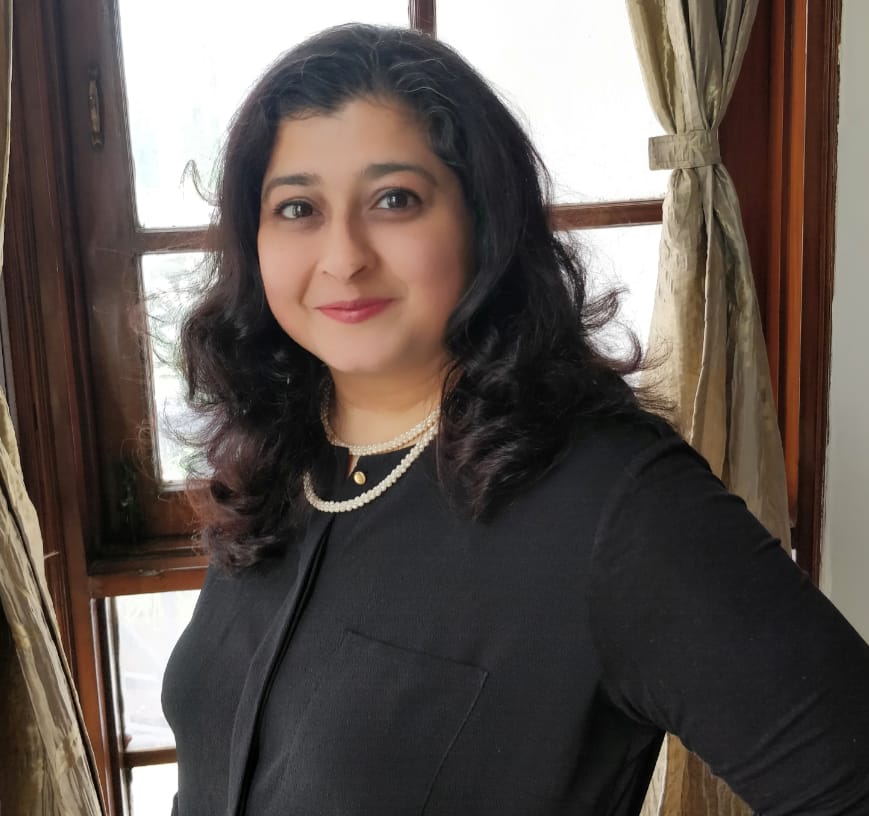CATEGORIES
Entrepreneurship | People We Admire | Women EmpowermentAekta, founder of eShe, a women empowerment blog and magazine, has always been intent on creating a space for women where they can be themselves without filters – visual or verbal. Her skills and experience as a journalist and reporter have allowed her to withhold the highest standards possible to create a magazine which doubles up as a safe space for women to speak their minds and take a step further towards empowerment and sisterhood.
1. Please tell us about your vision for eShe magazine
(i) What was the inspiration behind it?
Aekta Kapoor: eShe is an independent magazine and blog for women based in India and Canada. The monthly magazine celebrates the extraordinary stories of women around us, and is an exploration of our shared humanity.
eShe is the internet-oriented English way of writing इशी – which is another name for Goddess Durga, the feminine energy that powers the universe.
(ii) How did you begin the journey?
Aekta Kapoor: After a very long time working in fashion magazines, I wanted to create a quieter, more meaningful kind of media, which highlights the courage and resilience of Indian women, the unsung heroes among us. A space where regular women didn’t need to be photoshopped to fit in, a space where all our stories could be seen and honoured.
(iii) Which story features impacted you?
Aekta Kapoor: The luxury in running one’s own magazine is that I get to pick what I publish. So I only feature stories that impact me personally. So to answer your question, all stories have impacted me in some way, else they wouldn’t be in eShe!
But to give your readers a sample of some women’s stories that changed my world view completely or resonated deep inside my heart, here are a few:
- This American Transformed a Backward Community in Rishikesh, One Child at a Time
- This Activist Chose to Be a Single Parent (of 22!) as ‘Marriage Perpetuates Patriarchy’
- She Lost Her Arms So She Armed Herself With Courage Instead
- Yes, I Have Facial Paralysis, and Yes, I Am a Beauty Queen
- Sanmeet Kaur Lost Her Little Son But Used Her Grief to Fuel Her Life’s Mission
- Prerona Roy Sustained 82% Burns, and Then She Rose Like a Phoenix
- What It Takes to be India’s First Miss Deaf Asia
- A Birthday Boy, a Pair of Scissors — and 11 Months of a Mother’s Journey in Faith
- Bethany Hamilton: The Surfer Who Made the Impossible Possible
- She Had Picked a Date to Die, Then She Found Her Reason to Breathe

2. How did you wish to create impact through eShe magazine and what are your future goals for the same?
Aekta Kapoor: I envision a space where women can share their stories without fear of judgement, and where we encourage one another through life’s ups and downs. A sisterhood that supports and heals. At the same time, after a long career as journalist and editor, I wish to create a media product with the highest editorial and reporting standards.
When I started eShe three years ago, I had already intuitively known that digital publication will be the future of media, and so our articles are written and designed for web consumption and the requirements of SEO and digital marketing.
We have offered the digital magazine free for readers since the very first issue – a parameter that other media publications have been forced to adapt during the pandemic-induced lockdown this year. My hope had always been to disrupt the way people read and consume media, and I guess the universe has forced that behavioural change on media consumers now.
I’m still, however, trying to figure out the business aspect of this! So future goals definitely involve building up the magazine as a profitable media product. I am in no rush. While my resources may be limited, my life is abundant with blessings, coincidences and everyday miracles. Some kind of magic happens when you keep your eyes on your goal and keep moving towards it diligently, day by day, breath by breath.
For instance, I had never envisioned that our articles would be syndicated to Money Control every weekend (we have also syndicated to CNBCTV18, News 18 and Azhimukham in the past), or that we’d be ranked 25 among the top women’s magazines in the world by content aggregator Feedspot within just three years of existence.
Instead, I’ve mostly focused on the process, as that is deeply fulfilling by itself. Every day is a reward when you work with purpose.
3. Embedded within every challenge is an opportunity. What are some of the challenges you have faced in your life? Share with our audience how you overcame them and what you learned.
Aekta Kapoor: My life’s turns and twists have taken me to almost every possible position in the life of an average Indian woman: I have been both privileged as a daughter yet denied of choice and agency. I have been both a wealthy wife and a struggling single mother. I have been both empowered and disempowered. I have been both the docile, abused homemaker and the confident corporate team leader. I’ve been both psychologically damaged and spiritually unshakeable. My children have seen me both as a mentally absent mother and also one who is deeply present and involved. I’ve been in both a toxic and a healthy marriage.
I’ve really gone from one extreme to the other in one lifetime! And I think there was a reason for this, a divine plan at work. My diverse experiences have acquainted me first-hand with the most intimate thoughts, feelings and desires of the average Indian woman. Her fears and insecurities. The source of her strength and power. Which is why eShe is my ikigai – it’s the place where my purpose, skills and experiences meet.
I think if all of us look back into our life’s greatest challenges, we will see the seeds of our life’s greatest mission lying there as well.
4. What have you learned about leadership, entrepreneurship and mentoring others.
Aekta Kapoor: In my last job, I led a 15-member editorial team that was part of a huge media conglomerate with a dynamic culture and coordination across three or four cities. My job required me to travel frequently, make presentations to hundreds of coworkers, talk big numbers and measure success in millions of page views and unique visitors.
And yet the most rewarding aspect of this job for me that I will forever cherish was my ‘Monday Tips’ routine, when I gave five weekly tips for life and career to my 15 teammates, my most intimate circle at work. I often told them, “I want to be your mentor, not your boss.” I would do some homework before each session, which required me to dig out inspirational stories and messages, thus enriching me as well. It really brought me closer to my team and all of us benefitted from those sessions of motivation and positive thinking.
This experience taught me that we can only be effective leaders if we hunger for the success of each person we lead, if we encourage them to surpass us, if we push them to outperform us. Leadership requires humility and self-awareness. It also requires tough love. Mostly, it means allowing each individual to discover their own unique potential and supporting them wholeheartedly in their journeys. A leader’s greatest pride is seeing their mentees do well in the world.

5. What do you think is the most significant barrier to female leadership?
Aekta Kapoor: Barriers are both external and internal.
When it comes to the workplace, mindsets are still a problem in many parts of the world; men simply do not like reporting to women or taking orders from them. Women leaders who adapt to this bias by developing suitable personality traits (“assertive not aggressive” as they say) or adopting behaviours that help get work done by male juniors (delegation, positive reinforcement, smiling more) are usually more successful. Otherwise, the playing field is unevenly stacked against women in most corporate cultures.
Women in South Asia additionally face external challenges at home, where they are expected to fulfill domestic roles. Families do not always adapt to a woman’s needs if she is working outside the house. So she ends up doing work at home and outside as well, with very little time for leisure or self-care. This leads to burnout and stress-related ailments.
Then comes the internal barrier. Women are conditioned over generations to take on subordinate roles in families and life in general, relegating authority and decision-making to men. Being unseen and unheard is a safety mechanism taught to girls to avoid confrontation, violence, sexual assault, or risk to life in almost every society.
If a woman is not brought up in a family environment where she is encouraged to lead and to develop her potential, it is extremely difficult later in life to change one’s primary instinct to stay invisible, and to step out of one’s comfort zone.
Very few women overcome these barriers to reach leadership positions in organisations without giving up somewhere down the line. Some of them are forced to transform themselves due to their circumstances, others are fighters or exceptionally gifted. All of these women are truly heroes.
6. What are the major development challenges specific to women?
Aekta Kapoor: Organisations can help women employees develop and come forward by first understanding and eliminating the various external and internal barriers that women face.
Workshops to change men’s mindsets and women’s confidence issues; workplace rules that encourage diversity and accommodate personal challenges (such as mothers with little kids); and an overall corporate culture of respect, collaboration and cooperation can help foster women leaders.
7. You are clearly a leader of learning. How do you balance investing in yourself with investing in the relationships you have with other people?
Aekta Kapoor: I’ve noticed that investing in relationships with others usually helps investing in oneself. Every time I have faced a relationship issue personally or professionally, it has forced me to look within myself and change some aspect of my personality or communication style.
Having a difficult time with my daughter when she was an adolescent forced me to change the words I used with her and to adopt a more positive approach. Clashes with a boss forced me to look deep within myself for old triggers, to understand where the problem began within me, and to have a growth mindset versus a competitive one. Conflict between my subordinates at work forced me to uncover my unconscious biases and to develop a sense of impartiality and fairness. Fights with my husband always, always, always force me to look within on how to change myself, to love more and judge less.
As a result the problematic situations are usually resolved, while I tuck away one more certificate in personal-growth in my spiritual file cabinet. 🙂
8. What are your sources of happiness and inspiration?
Aekta Kapoor: I am a practitioner of Nichiren Buddhism, which is one of my biggest sources of positive energy, sense of community, empathy, wholesome joy, and never-give-up approach to life. Besides this, I have proactively sought happiness and inspiration over the past 16 years or so. I read the Gita and other spiritual literature; I have signed up for various motivational messages and emails; I practise yoga and breathing exercises; and I cuddle my family and dog daily.
But my greatest happiness EVER is a good book of literary fiction. If I have my hands on one, I am dead to the world, and have no more need for food, sleep or company!

9. Please share a quote or life mantra you live by.
Aekta Kapoor: This passage of Marianne Williamson affected me deeply many years ago:
“Our deepest fear is not that we are inadequate. Our deepest fear is that we are powerful beyond measure. It is our light, not our darkness that most frightens us. We ask ourselves, ‘Who am I to be brilliant, gorgeous, talented, fabulous?’ Actually, who are you not to be? You are a child of God. Your playing small does not serve the world. There is nothing enlightened about shrinking so that other people won’t feel insecure around you. We are all meant to shine, as children do. We were born to make manifest the glory of God that is within us. It’s not just in some of us; it’s in everyone. And as we let our own light shine, we unconsciously give other people permission to do the same. As we are liberated from our own fear, our presence automatically liberates others.”
That is why eShe’s workshops for personal growth are titled ‘Shine Your Light’.
10. What advice do you have for youth and our growing community of leaders? In other words, what would you tell a younger version of yourself?
Aekta Kapoor: Discover your calling – even if it takes a lifetime – and then devote your lifetime to it wholeheartedly. It will take work, patience, determination, even sacrifice, but you will be enriched a hundred times over. Embrace adversity, do not resist pain, treat challenges as opportunities for growth. Your ultimate happiness lies just outside of your comfort zone.


